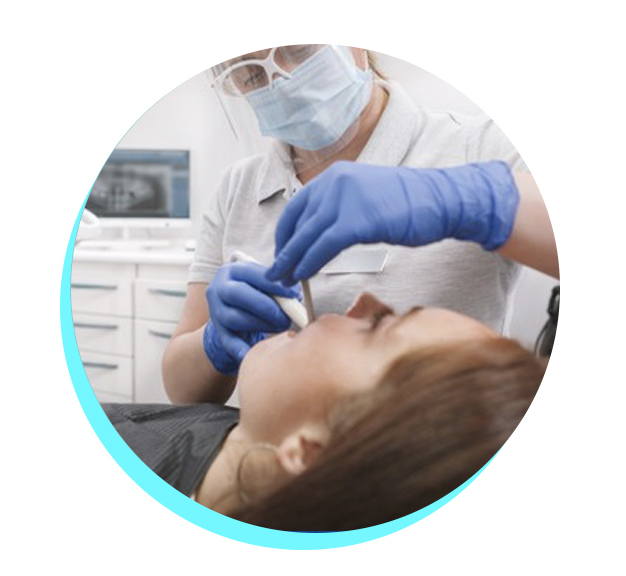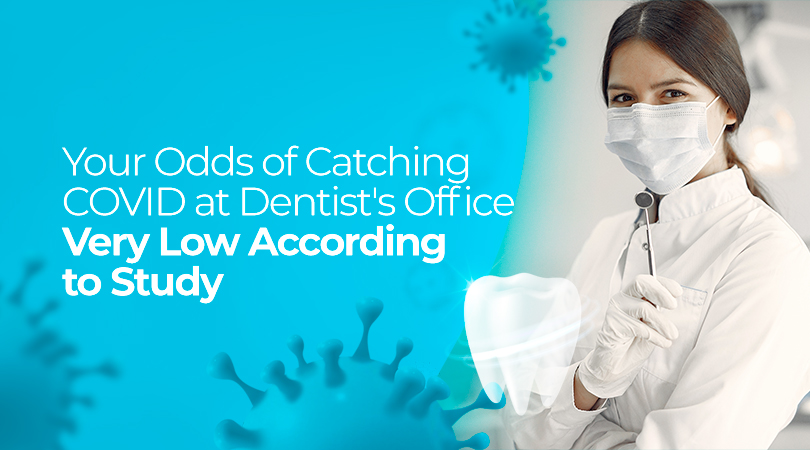If you need to schedule your next dental appointment but are concerned due to the ongoing Covid-19 pandemic a new study may help you ease your mind. According to a recent study SARS-CoV-2 infection risk at the dentist’s office is low and that current infection control practices are adequately robust to protect personnel and patients alike.
Because COVID-19 spreads mostly by airborne droplets, fears have persisted throughout the pandemic that saliva released during a dental procedure could spread the virus. On March 16, 2020, 198,000 dentists in the United States closed their doors to patients, fueled by concerns that aerosols generated during dental procedures are potential vehicles for transmission of respiratory pathogens through saliva.

Researchers from the Ohio State University set out to determine whether saliva is the main source of the spray, collecting samples from personnel, equipment and other surfaces reached by aerosols during a range of dental procedures.
Among the 28 patients enrolled for the study, salivary bacteria were detected in condensate from only eight cases and of those, five patients had not used a preprocedural mouth rinse. The SARS-CoV-2 virus was identified in the saliva of 19 patients, but was undetectable in aerosols in any of the cases.
Microbes from irrigants contributed to about 78 percent of the organisms in aerosols while saliva, if present, accounted for 0.1 per cent to 1.2 per cent of the microbes distributed around the room.
By analyzing the genetic makeup of the organisms detected in those samples, the researchers determined that watery solution from irrigation tools, not saliva, was the main source of any bacteria or viruses present in the spatter and spurts from patients’ mouths.
Even when low levels of the SARS-CoV-2 virus were detected in the saliva of asymptomatic patients, the aerosols generated during their procedures showed no signs of the coronavirus. In essence, from a microbial standpoint, the contents of the spray mirrored what was in the office environment. The study was published in the Journal of Dental Research.
“Getting your teeth cleaned does not increase your risk for Covid-19 infection any more than drinking a glass of water from the dentist’s office does,” said lead author Purnima Kumar, Professor of Periodontology at Ohio State.
“Hopefully this will set their mind at rest because when you do procedures, it is the water from the ultrasonic equipment that’s causing bacteria to be there. It’s not saliva. So the risk of spreading infection is not high,” she said. “However, we should not lose sight of the fact that this virus spreads through aerosol, and speaking, coughing or sneezing in the dental office can still carry a high risk of disease transmission,” Kumar said.

